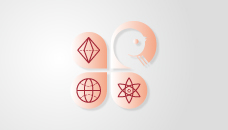Xiang Gao, Shicheng Dai, Yun Teng, Qing Wang, Zhibo Zhang, Ziyin Yang, Minhyuk Park, Hang Wang, Zhe Jia, Yunjiang Wang, Yong Yang. Ultra-Efficient and Cost-Effective Platinum Nanomembrane Electrocatalyst for Sustainable Hydrogen Production[J]. Nano-Micro Letters, 2024, 16(1): 108
Search by keywords or author
- Nano-Micro Letters
- Vol. 16, Issue 1, 108 (2024)
Note: This section is automatically generated by AI . The website and platform operators shall not be liable for any commercial or legal consequences arising from your use of AI generated content on this website. Please be aware of this.
Abstract
Set citation alerts for the article
Please enter your email address


 AI Video Guide
AI Video Guide  AI Picture Guide
AI Picture Guide AI One Sentence
AI One Sentence



